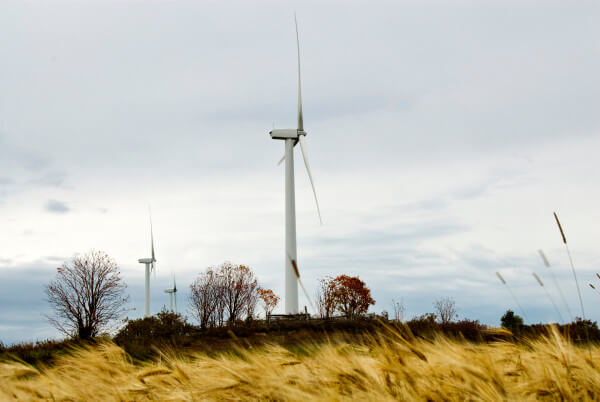
To meet climate change commitments, Canada will need to produce twice as much renewable electricity across the country as it does today.
According to a new report from the Canadian Council on Renewable Electricity, renewable energy generation will need to double in Canada to meet the country’s commitment to decarbonize its energy system and fight climate change. Clean energy will also need to be used efficiently to power Canadian buildings, vehicles, and industries.
The report, Powering Climate Prosperity: Canada’s Renewable Electricity Advantage, arrives as Canada’s Prime Minister and Premiers prepare to meet next week in advance of the global climate talks. It provides a detailed outline of the country’s current renewable electricity production and explores how the nation can dramatically reduce carbon emissions by 2050.
The report maintains that three significant changes to Canada’s energy production and consumption are required by 2050 if we aim to do our part to prevent average global temperatures from rising to dangerous levels.
Specifically, the country must:
- Intensify efforts to cut energy waste across the economy,
- More than double renewable electricity generation capacity, and
- Increase use of electricity as the “clean fuel of choice” to power the economy.
“Across the country, renewables are now a cost-competitive option for new electricity, and because the ‘fuel’ is free we know they will remain affordable,” said Robert Hornung, President of the Canadian Wind Energy Association (CanWEA). “We already produce a significant amount of renewable electricity, but we have barely even scratched the surface of Canada’s renewable energy potential.”
Powering Climate Prosperity draws on data and modeling conducted by the Low Carbon Pathways group at Carbon Management Canada, and published in Pathways to Deep Decarbonization in Canada (September, 2015). This report was released in conjunction with the release of the 16-country report in Paris by the United Nations Sustainable Development Solutions Network (UNSDSN) and the Institute for Sustainable Development and International Relations (IDDRI). The international study will be tabled by the French presidency at the United Nations’ 21st Conference of the Parties in December 2015 (COP21).
“The formula to decarbonize our energy system is straightforward: waste less energy, maximize our use of renewable sources of electricity, and use electricity as the preferred source of energy to power everything from buildings to industry to transportation,” said Jacob Irving, President of the Canadian Hydropower Association.
Elisa Obermann, Executive Director of Marine Renewables Canada added: “Compared to most countries, Canada has a head start: we already get more than 65% of our electricity from renewable sources. And we know how to responsibly tap into those resources, so now it is a matter of scaling up so we can power more of our lives with clean energy.”
Canadian Council on Renewable Electricity
www.renewableelectricity.ca | www.electriciterenouvelable.ca
CanWEA
www.canwea.org
Filed Under: News, Policy




